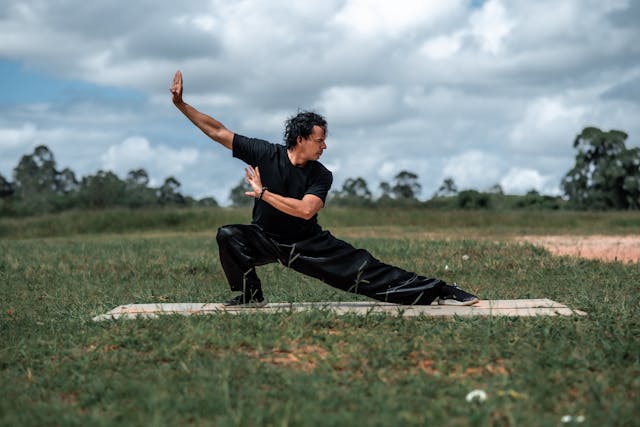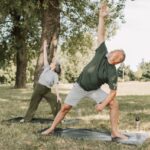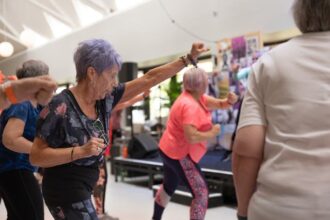Despite the recognised advantages of tai chi for enhancing functional mobility and balance in older adults, the breadth of these benefits has been obscured by the considerable variability in the methodologies and findings of existing research. However, a recent comprehensive review and meta-analysis of the literature confirms that tai chi offers significant improvements in these areas for relatively healthy older adults, surpassing the outcomes associated with traditional exercises.
This analysis delved into 12 studies involving 2,901 participants, uncovering evidence of tai chi’s efficacy. Notably, compared to standard exercise regimens, tai chi participants demonstrated superior performance in several key metrics:
– They completed a 50-foot walk an average of 1.84 seconds quicker.
– Their ability to maintain a one-leg stance was extended by 6 seconds with open eyes and by 1.65 seconds with closed eyes.
– Performance in the timed-up-and-go test, which assesses speed in standing, walking, and sitting, improved by 0.18 points.
– Significant advancements were observed in the functional reach test, with a standardised mean difference of 0.7, underscoring an enhanced capacity for reaching and conducting daily tasks.
Further insights from secondary analyses indicated that tai chi programs of relatively short duration (less than 20 weeks) and low total engagement time (up to 24 hours), particularly those centred on the Yang style, were incredibly influential in fostering better mobility and balance when compared to conventional exercises.
Brad Manor, PhD, the director of the Mobility and Falls Program at Hebrew SeniorLife’s Hinda and Arthur Marcus Institute for Aging Research, along with associate professor of medicine at Harvard Medical School and Beth Israel Deaconess Medical Center, and Junhong Zhou, PhD, assistant scientist II at the same institute and assistant professor of medicine at Harvard Medical School and Beth Israel Deaconess Medical Center, expressed their enthusiasm about the findings. They highlighted the compelling evidence from the review and meta-analysis for tai chi as a more effective method to enhance functional mobility and balance in relatively healthy older adults than traditional exercises.
Bao Dapeng, a professor at Beijing Sport University, emphasised the implications of this research for the design of future rehabilitative programs targeting balance and mobility improvement in older adults. He suggested that tai chi warrants serious consideration as a component of these initiatives.
The researchers associated with this study hail from prestigious institutions, including the Hebrew SeniorLife Hinda and Arthur Marcus Institute for Aging Research, Harvard Medical School, the School of Sports Medicine and Physical Therapy at Beijing Sport University, the Sports Coaching College at Beijing Sport University, the College of Physical Education and Health Science at Chongqing Normal University, and the China Institute of Sport and Health Science at Beijing Sport University, adding considerable weight to their conclusions.
More information: Brad Manor et al, The comparison between effects of Taichi and conventional exercise on functional mobility and balance in healthy older adults: a systematic literature review and meta-analysis, Frontiers. DOI: 10.3389/fpubh.2023.1281144
Journal information: Frontiers Provided by Hebrew SeniorLife and Hinda and Arthur Marcus Institute For Aging Research








